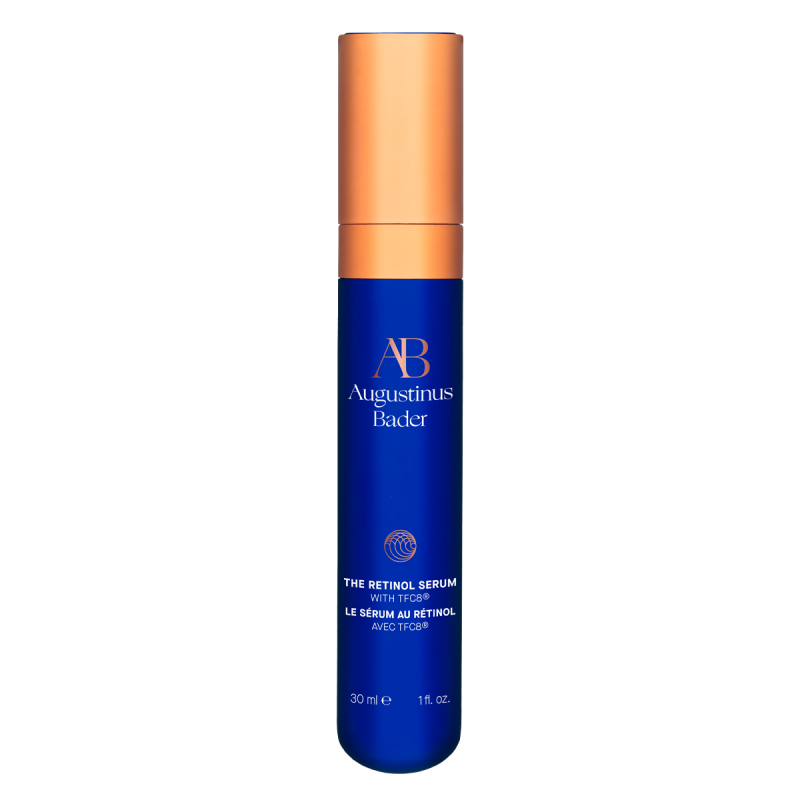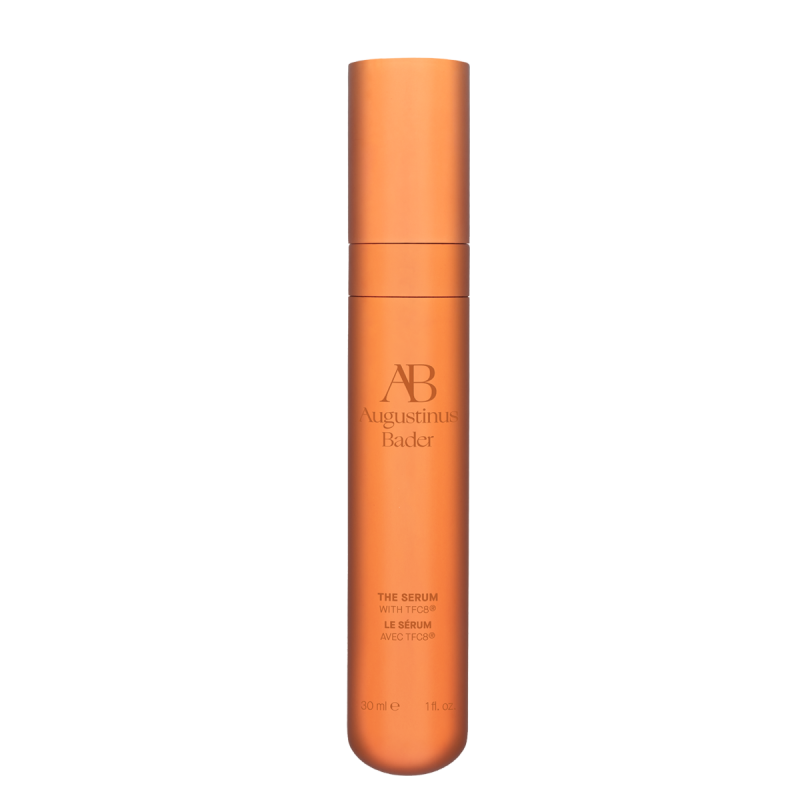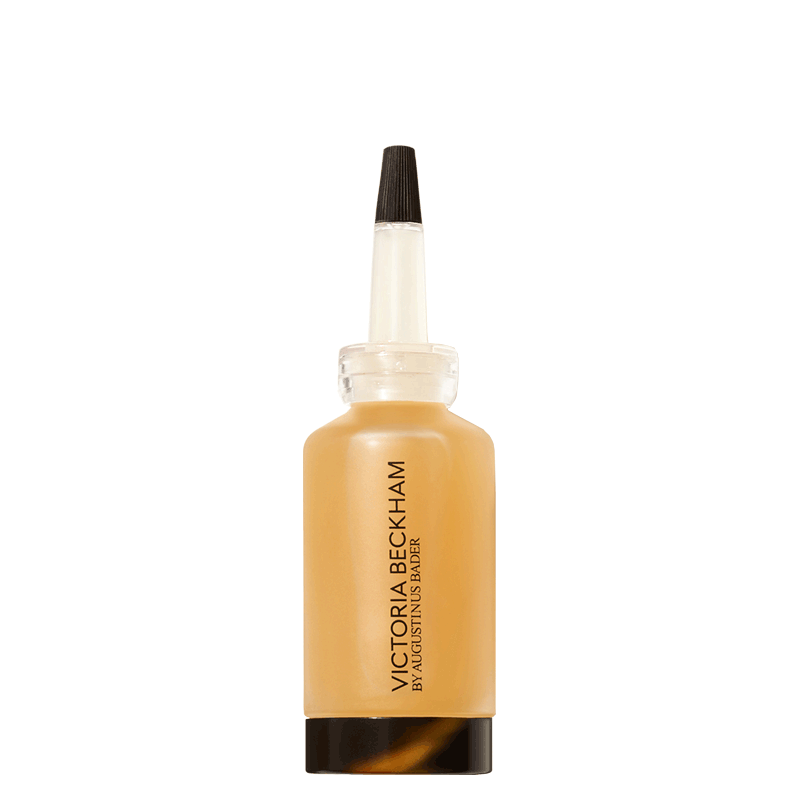What does retinol do? Retinol is the holy grail of anti-aging. It's a powerful antioxidant commonly featured in serums, eye creams, moisturizers, and other beauty products. When used regularly and consistently, it can help eliminate signs of premature aging, including wrinkles and fine lines.
If you're ready to experience the numerous benefits for the skin and overall health, here's everything you need to know about the wonders of retinol:
The Quick Answer: How to Use a Retinol Serum
Apply a pea-sized amount of retinol over the face, neck, and décolleté. Gently rub into the skin while avoiding your mouth, eyes, and nose. Once your skin has adjusted to the product, retinol serum should be applied daily as part of your nighttime skincare routine.
What is Retinol?
Vitamin A is the source of retinol, which beauty products frequently use due to its anti-aging properties. Many retinol creams, moisturizers, and serums contain this ingredient, which serves as an over-the-counter substitute for Retinoids. Nevertheless, Retinoids, available only through a medical professional or dermatologist, are stronger and more potent.
Retinol Cream vs Serum
The main difference between a retinol cream and a serum is the formula and the product consistency. Retinol serums have a higher concentration of retinol. They are also typically paired with clean actives and botanicals that help maximize results and maintain that gentle, lightweight texture. Retinol creams often contain hydrating ingredients, but they are not as potent as serums and may not provide the same results as quickly. Additionally, they tend to have a creamier and thicker texture than serums.
Serums are a more suitable choice for individuals with oily or acne-prone skin. Retinol cream is ideal for individuals with dry or sensitive skin.
When introducing serums into your skincare routine, be mindful of the acclimation period. Overuse can lead to dryness, redness, or irritation. If your skin is sensitive, consider using the skin cycling method or applying a serum every other day until your skin has adjusted to the potency of the ingredients.
What are the Benefits of Retinol?
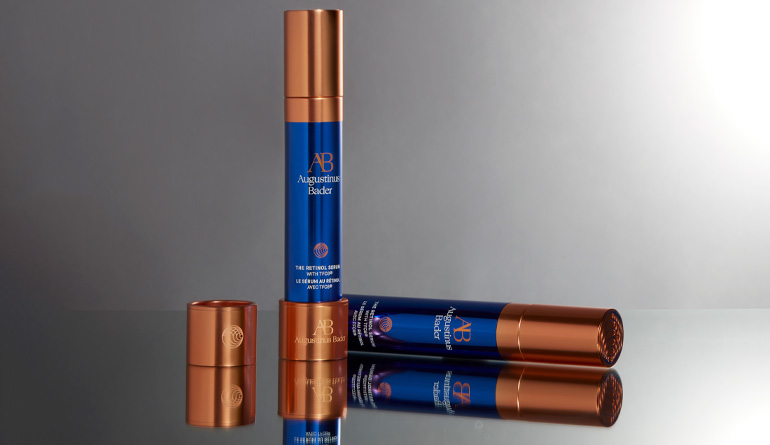

While retinol isn't as potent as prescription Retinoids, it has several benefits for your skin. Here are some of the most common retinol benefits:
Reduce the Appearance Of Fine Lines and Wrinkles
Retinol is the holy grail of anti-aging. Experts in the beauty industry regard retinol as the ultimate solution for anti-aging due to its remarkable ability to remedy premature signs of aging. Retinol helps stimulate collagen production in the skin, which can help reduce the appearance of fine lines, wrinkles, and other premature signs of aging. Retinol also helps enhance skin firmness and elasticity and improve your skin structure, which can help keep your skin plump and help you maintain your youthful glow.
Helps With Hyperpigmentation
Struggling with skin discoloration, raised dark patches, or sunspots? Retinol has natural skin-brightening abilities that can inhibit melanin production in the skin, lighten dark spots, reduce the appearance of hyperpigmentation on the skin, and help you achieve a brighter, healthier-looking complexion.
Acne and Acne Scars
Retinol is also an acne-fighting ingredient. Consistent use of retinol in your skincare routine can unclog pores, reduce inflammation, and regulate oil production. A retinol serum also has notable brightening properties that can help reduce the appearance of acne scars and other imperfections.
Reduce the appearance of Psoriasis
If you struggle with Psoriasis, retinol can reduce the frequency of psoriasis flare-ups, treat dry, itchy patches of skin, and improve skin texture and tone. However, it's not a cure for Psoriasis. If you're struggling with the condition, consult a medical professional to find a treatment to improve your skin condition.
Protects Against Environmental Aggressors
Retinol is a potent antioxidant that can protect your skin from free radicals and UV radiation. Antioxidants neutralize free radicals that cause oxidative stress. Without antioxidants, you may experience fine lines, wrinkles, and other signs of premature aging caused by external factors.
How to Use a Retinol Serum
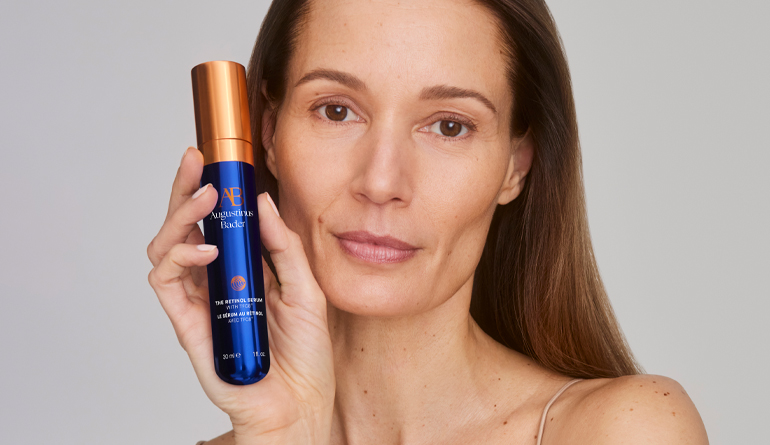

When incorporating retinol serum into your skincare routine, the application method is as important as the formula. If misused, retinol can lead to redness, irritation, and dryness. It may take some time for your skin to get used to retinol, but be patient, apply it properly, and always listen to your skin. Here's how to add a retinol serum to your routine:
● Start by washing your face with a gentle cleanser.
● Apply your favorite light cream on the fragile skin under your eyes, and then wait for your skin to dry.
● Before applying your retinol serum, you want your skin to be dry. If your skin is damp, the serum won't absorb into your skin as deeply or as quickly. If you're using a serum with a high concentration, this can lead to irritation. Keep in mind - apply most other serums on damp skin.
● Apply a small amount of retinol to your hand and massage it into your chin. Work your way up your face in circular motions.
Retinol works best as part of your nighttime routine. Retinol can make your skin sensitive to UV rays and sun, so you'll need that extra protection before you start your day. We recommend adding a broad-spectrum sunscreen into your daily routine that is at least 50 SPF.
What Step of Your Routine to Include Retinol
Since retinol can make your skin more sensitive to UV rays and sunlight, it's best to use Retinol serums at the end of the day during your nighttime skincare routine.
After you wash your face with your favorite gentle cleanser, you'll want to apply a pea-sized drop of retinol to your skin. Gentle massage the serum into your skin and then continue with the rest of your skincare routine. Repeat this process every night before bed for the best results.
How Often Should You Use a Retinol Serum?
Serums help individuals take a more targeted approach to their skincare concerns. They typically contain strong concentrations of ingredients, anywhere from 0.3% to 1%. But retinol serums are less potent than subscription retinoids.
When you first start using retinol, you should start slowly. Retinol can cause skin irritation and sensitivity, so using it every other day is best until your skin builds tolerance.
We recommend using it 1-3 times a week at first and then working up to 7 days a week, which will help your skin adapt to adding a strong concentration of retinol. If your skin shows irritation, adjust your routine to meet your skin's needs.
Can All Skin Types Use Retinol?
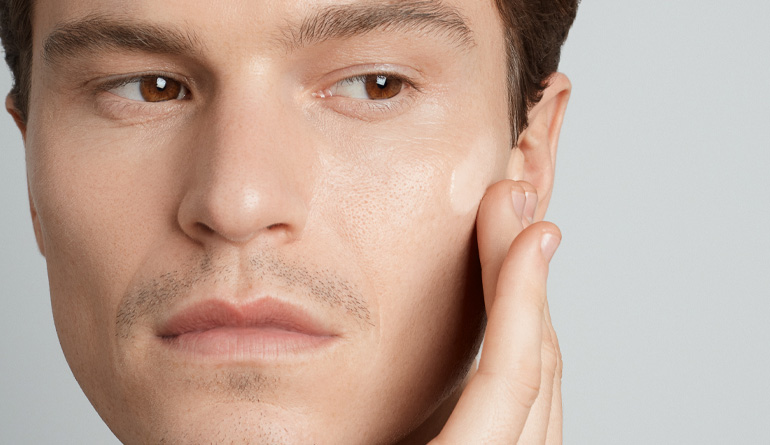

Retinol is safe to use for all skin types. However, it's best to ease retinol into your skincare routine if you have dry or sensitive skin. Using a retinol-based serum too frequently can lead to redness, inflammation, and irritation, so start with a low concentration and slowly introduce retinol into your skincare routine.
Retinol also benefits acne or oily skin, as it can help regulate oil production and unclog pores. However, you should never overdo it and apply the retinol properly. Here are a few things to consider:
Don't Combine with Exfoliants
Retinol already has exfoliating properties. If you combine them with harsh exfoliants or scrubs, it can lead to redness and irritation. If you have an exfoliant you like to use in your routine, we recommend switching them out every other day.
Always Apply Retinol First
For the best results, apply retinol to clean, dry skin before your moisturizer, additional serums, and sunscreen. This method ensures your skin gets the most out of the retinol, and the product seeps deep into your skin.
Be Careful with Retinol and Vitamin C
There's a ton of controversy around mixing retinol with vitamin C. Both are powerful antioxidants with great benefits for your skin. However, it can lead to irritation if you use them together, especially if you have dry or sensitive skin. To reduce your risk of irritation, we recommend using a vitamin C serum during your morning routine and retinol during your nighttime routine.
You can alternate with The Serum, our potent formula for persistent skin challenges. The Serum contains Vitamin C, Rice Bran Oil, Edelweiss, and Pomegranate Seed extracts to help rejuvenate, revitalize, and protect the skin.
Pair Retinol and Niacinamide Together
Niacinamide is another beneficial ingredient that plays well with retinol and can help improve the appearance of pores, reduce inflammation, and brighten the skin. We recommend pairing it with our Cell Rejuvenating Power Serum
This serum contains a powerful blend of skin conditioners, including Niacinamide, which addresses the appearance of past skin damage, strengthens your skin’s moisture barrier, and helps your skin achieve a vibrant, youthful glow. We recommend pairing this serum with a retinol serum for the best results.
Make Retinol Part of Your Evening Routine
A retinol serum should always be part of your nighttime routine, not your morning routine. Retinol is sensitive to UVB rays and can increase your chances of skin damage or sunburn. During your morning routine, we recommend applying sunscreen with an SPF of 30 or higher to ensure you can experience the retinol benefits without putting your skin at risk.
Don't Skip Your Neck
Did you know that your neck is often one of the first parts of your body to show signs of aging? When applying your skincare products, make sure you never skip the neck. This rule applies to your retinol, sunscreen, and daily moisturizer.
Pay Attention to Your Skin's Reaction
If you have acne-prone or sensitive skin, you'll want to ease retinol into your skincare routine, as it can sometimes have side effects if you use it too often and too quickly. The best way to introduce a retinol serum into your routine is to use it gradually. Start using it a few times a week, then every other night, then slowly work your way up to every night before bed.
Consider the Skin Cycling approach if you're worried about skin irritations but want to experience the retinol benefits. This approach to skincare allows you to introduce active ingredients into your routine without overdoing it. This is a four-day routine - the first night you use an exfoliant, second retinol, give your skin a two-day break, and repeat the cycle.
What Are The Best Types of Retinol Products to Use?
If you plan to add retinol to your skincare regimen, you might feel overwhelmed by the many product choices available. Retinol serums and creams are the most popular options. However, choosing a retinol serum may be the better option if you want to target specific skin concerns. This is because serums generally have higher concentrations of retinol, which can help keep your skin looking youthful.
You'll also want to consider your unique skin type. If you have dry skin, a retinol cream may be a better solution because it's typically paired with ultra-hydrating ingredients. If you have acne-prone skin or skin sensitivities, we recommend using a serum because it's lightweight and won't clog your pores.
When Should I Start Using Retinol?
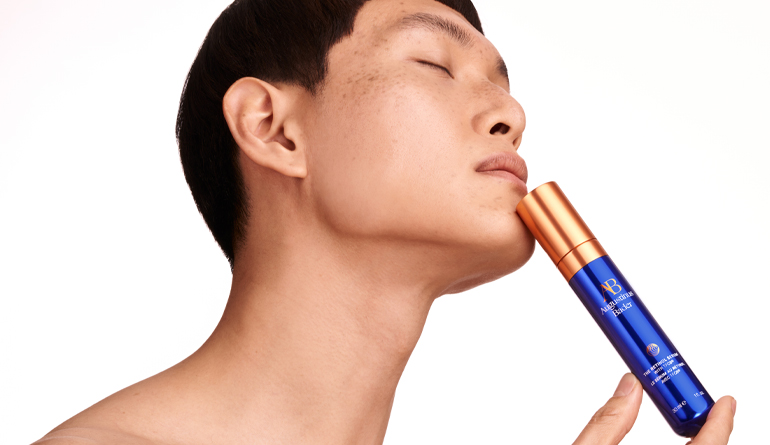

Irrespective of skin condition, there's no right or wrong time to start using retinol. With its long-lasting benefits, retinol can target your unique skin concerns and help you achieve visually healthier-looking skin. While you may feel eager to get ahead of discoloration, wrinkles, and fine lines, you don't technically need to start introducing a retinol serum into your routine until your late-20s or early 30s. These are the years when your skin's natural collagen product begins to decline, and you can benefit from the anti-aging benefits of high-end retinol. However, you're never too young or old to use a retinol serum.
Can you Combine Retinol with Other Skin Treatments?
Retinol can be beneficial if you struggle with fine lines, wrinkles, or other premature signs of aging. Retinol allows you to take a more targeted approach to your skincare concerns and is the perfect supplementary product to add to your routine. You can also combine retinol with other skin treatments and create a complete skincare routine that meets your skin's needs. Here's a list of products you should include in your routine:
1. Daily moisturizer: If you use retinol regularly, it can dry out your skin. After applying retinol, use a daily moisturizer to help you lock in all-day hydration.
2. Hyaluronic acid: Hyaluronic acid is a hydrating skincare ingredient you can apply as a serum. If you want to incorporate both serums into your routine, we recommend using a hyaluronic acid serum before your retinol.
3. Vitamin C: Vitamin C is another popular, potent antioxidant your skin can benefit from. For the best results, apply a vitamin C serum in the morning and switch it to retinol at night.
4. Sunscreen: Sunscreen is a must-have. Retinol can leave your skin sensitive to UV rays, so to protect your skin, apply sunscreen with an SPF of 50 or higher at least once a day before spending time outside.
Everyone's skincare routine is different. No matter which products you choose, you can feel confident that retinol will play nicely with your skincare treatments.
When Should I Expect to See Results?
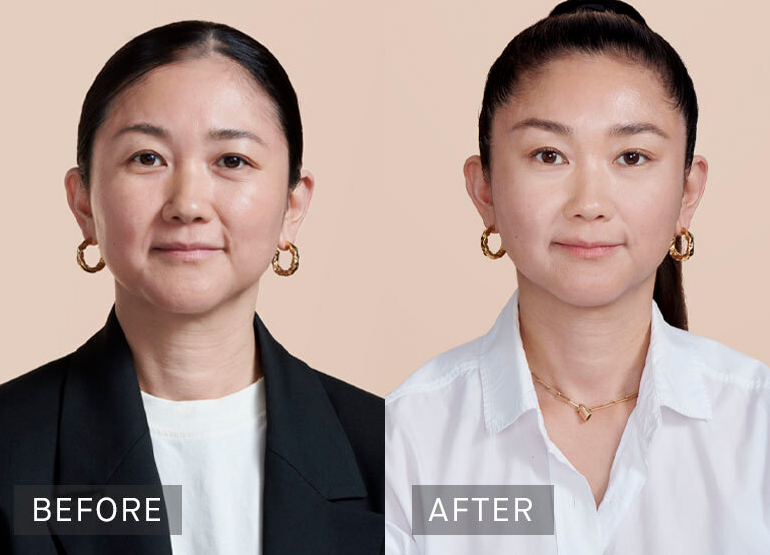

Results in 2 weeks: Yumi Mori, celebrity makeup artist, before and after 2 weeks of incorporating The Retinol Serum by Augustinus Bader into her skincare routine
Everyone is different, and so is their skin. How quickly you see results will depend on how consistent you are with your regimen, the frequency of use, your skin type, and which retinol serum you use.
If you're consistent, you may see an improvement in your skin tone and texture as quickly as a few weeks, with a reduced appearance of wrinkles and more hydrated skin. However, it will take longer to see a worthwhile improvement with hyperpigmentation, with dark spots lightening within a few months of regular use.
Stay consistent, invest in high-quality retinol, but moderate your retinol use. Remember, retinol can cause irritation, redness, flaky skin, and peeling. While these side effects are common, you should consult a dermatologist if these problems persist.
Augustinus Bader’s New Retinol Serum
The Retinol Serum is powered by our patented TFC8® technology and formulated with a stabilized form of retinol. Regular use can help reduce the appearance of deep lines and wrinkles, reduce blemishes, optimize the skin microbiome, and lock in all-day hydration. During our 12-week clinical trials, participants experienced a 73% reduction in fine lines, with 54% reporting an increase in firmness and elasticity.
The Retinol serum is the newest addition to our skincare line and an advanced age defense and blemish reduction must-have. We recommend pairing it with The Rich Cream and The Cream Cleansing Gel for the best results.
Clinical Trials with Before and After Results
When looking for a high-quality retinol to add to your daily routine, it's easy to feel overwhelmed by the number of options available and the effectiveness of the formulas.
At Augustinus Bader, we put our product, The Retinol Serum, to the test in a 12-week consumer perception study for 103 individuals with self-perceived sensitive skin. 100% of participants agreed that their skin looked renewed and rejuvenated, with 98% agreeing that it also felt smoother, clearer, and more refined.
All participants agreed during our user trials that our product was gentle, lightweight, and refreshing. There were no noticeable signs of dryness or irritation.
In our 12-week clinical trials, participants reported a 56% reduction in deep lines and wrinkles, and a 68% improvement in skin texture
Upgrade Your Routine With Augustinus Bader
Ready to get more from your beauty care? You’ve come to the right place. At Augustinus Bader, we formulate all our beauty care products with TFC8® technology and the highest quality ingredients. All our products undergo rigorous testing backed by 30 years of scientific research.
Ready to build a skincare regimen that delivers results? Start shopping today.


